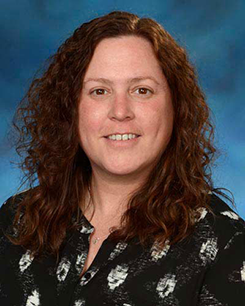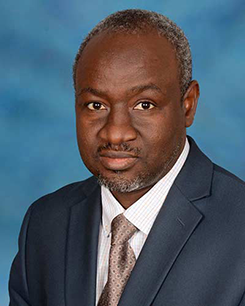November 17, 2023
The Institute of Human Virology at the University of Maryland School of Medicine (UMSOM) and the University of Maryland, Baltimore (UMB), are proud to announce that the Center for International Health, Education, and Biosecurity (Ciheb) was awarded $6.7million in grants from the National Institutes of Health (NIH). The awarded grants are: “Resilient HIV Implementation Science with Sexual and Gender Minority Youths using Evidence (RISE) Clinical Research Center,” (Principal Investigators: Charurat, Hightow-Weidman, Adebajo), “Projecting the age shift in HIV prevalence in sub-Saharan Africa: a necessary epidemiologic step to prepare for the “Silver Tsunami (EPI-PLAN-HIV)” (Principal Investigator: Stafford), Biomarker-Guided Evaluation of Glycated Testing Modalities for Dysglycemia among Persons Living with HIV (BEGET),” (Principal Investigator: Jumare).
Stafford), Biomarker-Guided Evaluation of Glycated Testing Modalities for Dysglycemia among Persons Living with HIV (BEGET),” (Principal Investigator: Jumare).
Each day, 1,600 adolescents and young adults acquire HIV infection. The RISE Clinical Research Center will be part of the Prevention and Treatment through a Comprehensive Care Continuum for HIV-affected Adolescents in Resource Constrained Settings (PATC3H) Implementation Science Network sponsored by the Eunice Kennedy Shriver National Institute of Child Health and Human Development (NICHD) to establish clinical research sites in Kenya, Malawi, Nigeria, and Zambia for conducting clinical trial of a digital health intervention to improve HIV prevention and treatment outcomes for at-risk adolescents and young adults. “To achieve HIV epidemic control globally, it is now critical to elucidate how to sustain uptake, adoption, and implementation of proven interventions for adolescents who are at risk for or living with HIV,” said Principal Investigator of the study, Man Charurat, PhD, Professor of Medicine and Epidemiology and Public Health and Global Director for Ciheb. “We will also translate our findings to inform national and global guidelines on the clinical management of adolescents and young adults.” This study will be done in partnership with Florida State University, local implementing partners, and Ministries of Health.
implementation of proven interventions for adolescents who are at risk for or living with HIV,” said Principal Investigator of the study, Man Charurat, PhD, Professor of Medicine and Epidemiology and Public Health and Global Director for Ciheb. “We will also translate our findings to inform national and global guidelines on the clinical management of adolescents and young adults.” This study will be done in partnership with Florida State University, local implementing partners, and Ministries of Health.
The dramatic success of expanded and sustained access to effective HIV treatment in Africa has led to people living with HIV living longer. To better estimate when and how much the African countries experience the population transition where most of their population with HIV are 50 years and older, EPI-PLAN-HIV will use repeated nationally representative data from Botswana and Zambia to predict the age distribution and HIV-associated non-communicable disease burden among PLWH compared to the general population through 2050. "Botswana and Zambia have made remarkable progress over the last two decades to end HIV as a public health threat,” said Principal investigator Kristen Stafford, PhD, Associate Professor of Epidemiology and Public Health and Deputy Director for Ciheb. “We look forward to working with these countries to plan for the healthcare needs of an aging population living with HIV to maintain the gains they have worked so hard to achieve.” Other study co-investigators include Meagan Fitzpatrick, PhD, Associate Professor of Medicine, Center for Vaccine Development at the University of Maryland School of Medicine, Dr. Bil ly Tsima of the University of Botswana, and Dr. Wilbroad Mutale of the University of Zambia.
ly Tsima of the University of Botswana, and Dr. Wilbroad Mutale of the University of Zambia.
The risk of developing prediabetes and diabetes mellitus is higher among people living with HIV, and over-reliance on glucose measures may be partly responsible for the poor diagnosis. Testing for Glycosylated hemoglobin (HbA1c) is considered highly valuable for early detection of diabetes, but it is currently not recommended for those living with HIV because of their lower hemoglobin levels. The BEGET study will identify HbA1c diagnostic thresholds for hemoglobin levels and markers of inflammation for diabetes mellitus and prediabetes among persons living with and without HIV. " Findings will inform the development of guidelines for the optimal use of glycated testing tools among PLHIV and others with low hemoglobin in the general population,” said Jibreel Jumare, PhD, CIHEB, Principal Investigator of the BEGET. " Findings will inform the development of guidelines for the optimal use of glycated testing tools among PLHIV and others with low hemoglobin in the general population,” said Jibreel Jumare, PhD, CIHEB, Principal Investigator of the BEGET. The study will also evaluate an alternative glycated test, fructosamine, with no hemoglobin limitation but not validated among PLHIV. Other investigators on this study are Shenghan Lai, MD, Professor of Epidemiology and Public Health, Alash’le Abimiku, PhD, Professor of Medicine, and Man Charurat, PhD, Professor of Medicine and Global Director for Ciheb.
The projects are funded by the NIH (1UG1HD113162-01, 1R21AI179493-01, 1R21TW012658-01).
About the Institute of Human Virology
Formed in 1996 as a partnership between the State of Maryland, the City of Baltimore, the University System of Maryland, and the University of Maryland Medical System, the IHV is an institute of the University of Maryland School of Medicine and is home to some of the most globally recognized and world-renowned experts in all of virology. The IHV combines the disciplines of basic research, epidemiology, and clinical research in a concerted effort to speed the discovery of diagnostics and therapeutics for a wide variety of chronic and deadly viral and immune disorders, most notably HIV, the virus that causes AIDS. For more information, visit ihv.org and follow us on Twitter @IHVmaryland.
About the University of Maryland School of Medicine
Now in its third century, the University of Maryland School of Medicine was chartered in 1807 as the first public medical school in the United States. It continues today as one of the fastest growing, top-tier biomedical research enterprises in the world -- with 46 academic departments, centers, institutes, and programs, and a faculty of more than 3,000 physicians, scientists, and allied health professionals, including members of the National Academy of Medicine and the National Academy of Sciences, and a distinguished two-time winner of the Albert E. Lasker Award in Medical Research. With an operating budget of more than $1.3 billion, the School of Medicine works closely in partnership with the University of Maryland Medical Center and Medical System to provide research-intensive, academic and clinically based care for nearly 2 million patients each year. The School of Medicine has nearly $600 million in extramural funding, with most of its academic departments highly ranked among all medical schools in the nation in research funding. As one of the seven professional schools that make up the University of Maryland, Baltimore campus, the School of Medicine has a total population of nearly 9,000 faculty and staff, including 2,500 students, trainees, residents, and fellows. The combined School of Medicine and Medical System (“University of Maryland Medicine”) has an annual budget of over $6 billion and an economic impact of nearly $20 billion on the state and local community. The School of Medicine, which ranks as the 8th highest among public medical schools in research productivity (according to the Association of American Medical Colleges profile) is an innovator in translational medicine, with 606 active patents and 52 start-up companies. In the latest U.S. News & World Report ranking of the Best Medical Schools, published in 2021, the UM School of Medicine is ranked #9 among the 92 public medical schools in the U.S., and in the top 15 percent (#27) of all 192 public and private U.S. medical schools. The School of Medicine works locally, nationally, and globally, with research and treatment facilities in 36 countries around the world. Visit medschool.umaryland.edu
Contact
Center for International Health, Education, and Biosecurity
Institute of Human Virology
Anthony Okoth
Regional Communications Specialist

